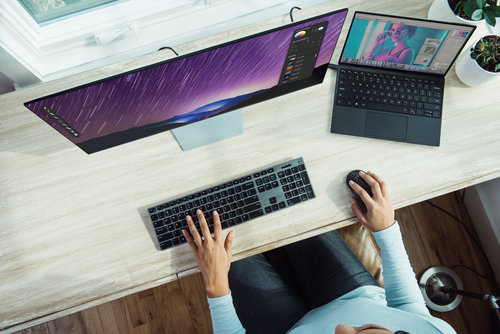Back to the office – but not just yet…
In recent weeks, there was a push by the government to get people in England back into the office[1] in a bid to get the economy going and to limit the economic damage to city centres. We wanted to find out reactions to the prospect of returning to the office and during the second week of September (w/c 7th Sept 2020), we polled 854 people on our MindMover Connect Community to ask whether they agreed or disagreed with this statement: “Office workers should be asked to return to an office space this month as a way of reviving the economy, particularly in city centres”.
In testament to the fast-moving landscape, however, the push to getting people back in the office has now been halted. New guidelines were issued by the government yesterday asking people who can work from home to do so, and the plan to get government workers back into the office by the end of the month has also been put on the shelf.
Still, it is interesting to see the reactions of our panellists on the topic. The statement put to them split opinion: 42% agreed (net agree) that office workers should be asked to return, while 32% disagreed (net disagree), and 24% were neutral. To explore the reasons behind their vote, we also ran an online qualitative forum.
Hybrid office working the future?
Response was not always black and white, but the key takeaway from across the groups is that a hybrid model of part working from home and part working from the office would be a favourable solution:
“I can see both sides. Since lockdown people have become accustomed to working from home and have somewhat become comfortable in that scenario and I also see we have to start reviving the economy, public transport, and city centre shops. Maybe there’s halfway measures, [like] flexi hours, job sharing, something to suit working families, singles or couples.”
In this blog, we focus on the point of view of those that would be directly affected – office workers themselves. Their reasons for wanting to go back or not were tinged with personal motivations rather than more general arguments about the economy.
Working from home has offered some tangible benefits, especially in terms of time and cost savings resulting from the removal of commute time, transport costs and lunch/drinks throughout the working day. These are positive side effects of the current situation that at least part of the office work force would hate to lose.
At the same time, this extended period of working from home has provided evidence that productivity is not necessarily linked to being in the office, giving further strength to the argument or desire to work flexibly and/or from home at least part of the working week.
Nervousness about a return to offices
The prospect of going back to an office space, and using public transport to get there was in fact described often as a source of stress, especially in a context where there are still observable issues with the number and management of Covid cases. Beyond the personal level, there were also concerns around a mass office return potentially triggering a new spike.
“I feel very nervous about returning to the office for several reasons. I worry about the commute; I worry about maintaining social distancing and hygiene in the office. I also worry about how it will feel to adjust to going back to the office when I’ve been working from home for six months.”
“I think this push to return to offices is a short-sighted and dangerous strategy — COVID cases are climbing and with winter approaching, the government should be taking more cautious measures. Also – this period has proven that people don’t HAVE to go to offices to be productive. All three of us in my household are working from home at the moment and it’s worked much better than going to an arbitrary office every day.“
On the other hand, amongst those wishing to return, there was a craving for a sense of normality and the social aspect of their working lives; a desire to be around people again and re-establishing social ties.
“I enjoy working from home, but I am looking forward to working with people in the flesh again. I think that is an important part of working life when working as part of a team. I do miss just having a chat which is not the same digitally.”
Despite hopes this month for a return to the office and some form of normality, the recent spike in cases and the new measures in place, appear to be with us for at least a few more months. Working from home, once a luxury afforded to few, continues to be the norm and filling the social gap will become increasingly important for office-based companies to keep people engaged and mentally strong.
[1] https://www.bbc.co.uk/news/uk-53942542
Do more with less – Agile Insight platforms by QuMind
By centralising all your insight tools, QuMind enables you to drive time and cost efficiencies through your organisation whilst taking back control of your insights. Our toolkit empowers you to make faster agile decisions in an ever changing business environment. Put your customer at the heart of your organisation with the QuMind agile insight toolkit.
Our platform is AI powered with integrated Quant & Qual tools enabling you to collect data across methodologies in one place. It boasts self-serve data collection surveys, pop-up communities, online Qual (diaries/focus groups), pop-up community, dashboards and reporting analysis tools. Text and video analytics ensure you get quick insights from your insight studies.
Want to take back control of your research, doing even more with less? Get in touch with [email protected].




